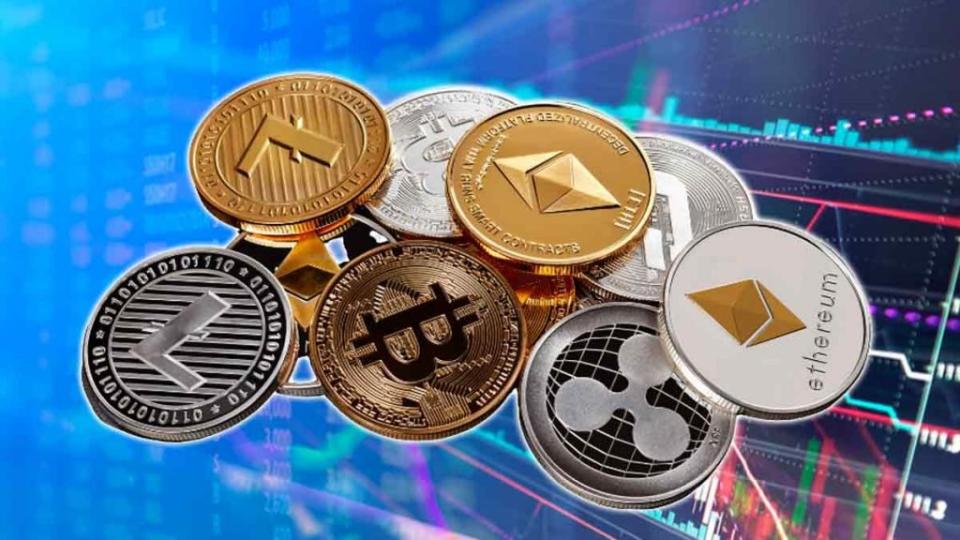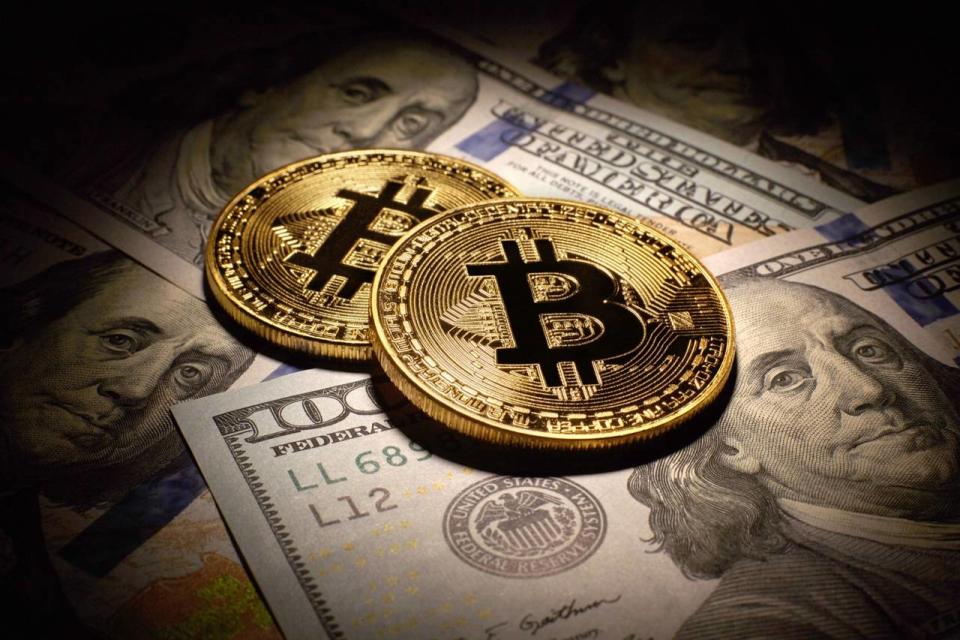Bitcoin, Ethereum, or something else? Interview with hedge fund manager Kane Kalas

It isn’t surprising that increasingly more investors are becoming interested in gaining exposure to cryptocurrencies. But with more than 4,000 cryptocurrencies in circulation, each with unique properties, making decisions about where to put your hard-earned cash could be intimidating.
The two largest cryptocurrencies by market capitalization are Bitcoin and Ethereum respectively. Bitcoin is the first mover in space. It emerged in 2009 as the world’s first decentralized digital currency, however, it wasn’t until several years later that it began to gain media attention. Ethereum, conversely, arrived in 2015 after the concept of digital assets had begun to go mainstream. Hedge fund manager and owner of Crystal Oak Capital, Kane Kalas, agreed to discuss with us whether Bitcoin, Ethereum, or potentially another cryptocurrency, holds the most promise as the world continues to adopt cryptocurrency and blockchain technology.
Bitcoin – The basics

Leading the way in the cryptocurrency market is Bitcoin. Thanks to its first-mover status Bitcoin has a more mature infrastructure than other digital assets; all cryptocurrency exchanges offer Bitcoin trading and there are even Bitcoin ATM machines located around the globe. As of the publication of this article, Bitcoin has a market capitalization of $781 billion, by far the highest among digital assets. Its value currently represents 47% of the entire value in the cryptocurrency market.
Unsurprisingly, Bitcoin’s high market capitalization has resulted in it being the most liquid and the most stable among free-floating digital assets. Relatively high liquidity and stability are attractive to institutional investors, who are rapidly adopting Bitcoin but seldom venture into smaller cap coins. Bitcoin’s simplicity and superior network security have also helped the world’s first digital assets garner favour among the big players in tech and finance.
Bitcoin is a decentralized, permissionless, digital currency and is therefore out of the scope of central banks. Its mathematically pre-dined maximum supply of 21 million coins gives it scarcity. As such, retail and institutional investors alike who are concerned about monetary inflation have turned to Bitcoin as a store of value.
Kalas’ views on Bitcoin

“It’s fair to say that Bitcoin is still volatile,” Kalas says “but it’s less volatile than other digital assets. It’s also the cryptocurrency with the longest track record and the best reputation for performing consistently well year on year.”
Due to Bitcoin’s scarcity and strong security, Kalas views the world’s first digital asset as a strong store of value like a digital version of gold. He believes that Bitcoin could destabilize gold completely in the long term.
Kalas conceded, “The first time I heard about Bitcoin was in 2012 when its value was just $5 per coin. I wish I’d been smart enough to invest in Bitcoin then, but I was concerned that a superior cryptocurrency could come around and replace Bitcoin, so it wasn’t until 2013 when I bought my first coin at $100. The trade I did make immediately after hearing about Bitcoin though, was selling all of my gold and I’ve never owned gold since.”
He added, “It’s my firm belief that eventually, blockchain technology will make gold completely useless as a store of value. Gold will one day be to Bitcoin what Blockbuster is to Netflix.”
Kalas points to Bitcoin’s superior portability, scarcity, fungibility, divisibility, storability, and non-counterfeit ability over gold as the reasons have expected it to, one day, overtake gold as the world’s primary store of value.
Ethereum – The basics

Ethereum, the second-largest cryptocurrency by market capitalization, possesses features not offered by Bitcoin via Ethereum’s smart contract system. A smart contract is a self-executing agreement in which the terms are directly written into lines of code. Smart contracts allow transactions to be carried out among anonymous parties without relying on an external enforcement mechanism. Ethereum’s code permits smart contracts to be written on the Ethereum blockchain such that Ethereum tokens can automatically be credited or debited based on the conditions of the smart contract. Cryptokitties, NFTs, and Cryptopunks are all examples of speculative assets that are powered by Ethereum blockchain smart contracts.
In addition, the Ethereum blockchain supports a number of alternative cryptocurrency tokens, referred to as ERC-20 tokens. ERC-20 tokens have predefined rules regarding how the tokens can be transferred, how transactions are approved, and how users can access data about their tokens. Currently, there are more than 200,000 different ERC-20 tokens operating on the Ethereum network. These additional use cases of the Ethereum platform give the second-largest digital asset by market capitalization a distinct versatility advantage over its predecessor, Bitcoin.
Another major difference between Ethereum and Bitcoin is the type of consensus mechanism that the blockchains use to validate transactions on the immutable ledger. Ethereum uses the proof of stake system, which allows miners to validate block transactions based on the number of coins the miner holds. Bitcoin, conversely, employs the proof of work system, in which miners exert computational effort to verify the validity of transactions by solving arbitrary math problems. Bitcoin’s proof of work system has superior decentralization and increases the cost of a network attack when compared to Ethereum’s proof of stake system. Ethereum’s proof of stake system, however, is significantly more energy-efficient and offers superior rewards to owners of Ethereum.
Kalas’s views of Ethereum

“It’s hard to compare Ethereum and Bitcoin,” Kalas says. “While both are valuable, they have different uses. Ethereum, unlike Bitcoin, is infrastructure and offers the potential to completely revolutionize technology, finance, and the way we do business. Bitcoin’s use case is limited; however, it is already being widely adopted for that use case – as a store of value.”
As far as Bitcoin overhauling the global payment system, replacing fiat currencies and credit cards in day-to-day transactions, Kalas is not so optimistic.
“Many people have this idea that Bitcoin will one day be used in everyday consumer purchases,” says Kalas. While he concedes this is possible, Kalas claims he wouldn’t bet on it, adding, “The costs of storing microtransactions on an immutable public ledger are too high.”
All things considered, Kalas believes there is more upside to Ethereum than Bitcoin.
“I’m a strong advocate for Ethereum,” Kalas reports, “I think we may see a “flippening” in the next 5 years or so in which Ethereum’s market cap will surpass Bitcoin’s.”
What about alt coins?

But Bitcoin and Ethereum are far from the only options available to investors who want to speculate on digital assets. There are more than 4,000 other cryptocurrencies and more than 200,000 other ERC-20 tokens in circulation. Each of these digital assets attempt to improve upon the properties of Bitcoin and Ethereum to compete for market share. While some of these projects have legs, an overwhelming majority of them fall short at delivering any additional value, says Kalas.
“I would avoid almost all alt coins. Their value is derived from speculative demand rather than real-world use cases.” When asked if he would invest in any alt coins, Kalas opined, “Anonymity is something that neither Bitcoin nor Ethereum does particularly well so a coin like Monero, which accomplishes anonymity and also has a good dev team is interesting.”
Ethereum or Bitcoin – Which should I buy?
While Kalas believes the prices of both Bitcoin and Ethereum are going higher over the coming years, he thinks the idea that any digital asset currently in existence will replace the existing global payment systems is a mere phantasy.
So which cryptocurrency represents the best potential for profitable investment? This is the question that we posited to Kalas and one that he, uncharacteristically, has hedged his bets on.
According to Kalas the answer to this question depends on the individual risk profile of the investor. He expects Bitcoin to see more stable growth with less downside volatility. He believes Ethereum meanwhile has the potential for explosive growth in the event that its smart contract system is adopted in the mainstream. But he warns that an investment in Ethereum carries with it more volatility than an investment in Bitcoin.
“Ethereum is a higher-risk, higher-reward bet,” Kalas says, “But today Bitcoin and Ethereum have both proven staying power; they have highly competent dev teams, grassroots user support, and increasing institutional interest.”
Cryptocurrency as an asset class

And finally, we asked, is cryptocurrency, in general, a prudent asset class to own for most investors?
“As time goes on it is likely that most investment strategies will include some exposure to digital assets,” Kalas noted, adding, “digital assets are relatively uncorrelated to other asset classes making them an attractive means of diversification even for conservative investors.”
This article Bitcoin, Ethereum, or something else? Interview with hedge fund manager Kane Kalas appeared first on BreezyScroll.
Read more on BreezyScroll.

 Yahoo Finance
Yahoo Finance 